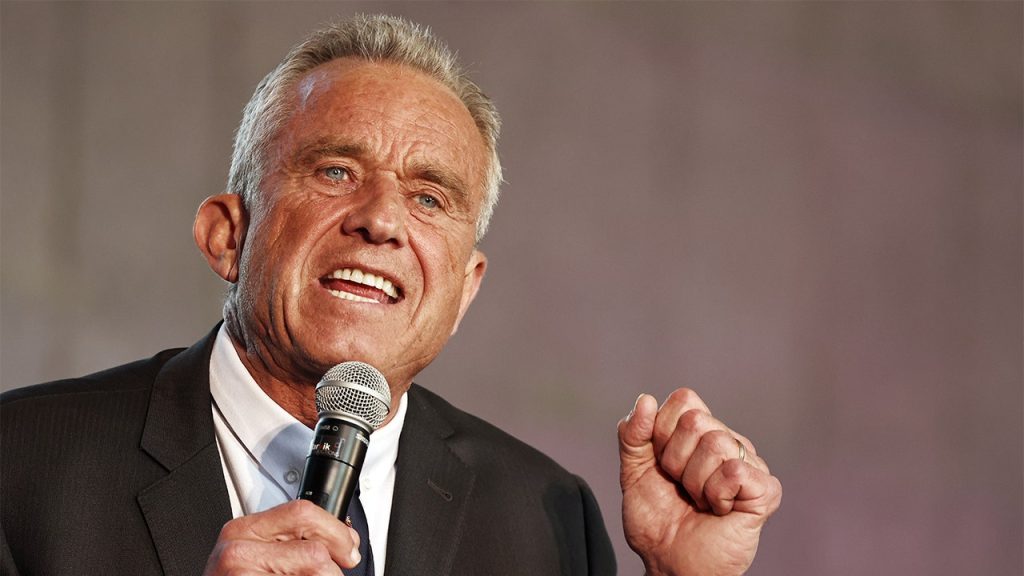Robert F. Kennedy, Jr., a presidential candidate, has made controversial remarks regarding China, including praising the country for using threats of prison or organ harvesting to meet its green energy goals. Kennedy’s remarks from 2014 on a radio show highlighted China’s clean energy agreement and its commitment to increase non-fossil fuel energy by 20% by 2030. He expressed support for the Paris climate agreement, while lauding President Obama for his climate policies. Kennedy speculated that China’s enforcement of climate policies involved provincial governors dividing the workload and potentially punishing government employees who did not meet quotas, including jail time or organ harvesting.
Kennedy continued to commend China for its production of solar panels, which led to a surplus of panels worldwide and decreased American manufacturing of solar panels. He noted that China’s ability to get things done efficiently compared to the United States. Kennedy, the son of late U.S. Attorney General Robert F. Kennedy, announced his candidacy for president as an Independent after initially running as a Democrat. Despite his lower polling numbers compared to Trump and Biden, he maintained that a third-party candidate could still win the election with 33% of the vote.
In addition to his comments on green energy, Kennedy also made controversial statements about military tensions with China, arguing that the U.S. should de-escalate its military pressure on the communist nation. He suggested letting Taiwan and China resolve their issues independently and reducing military involvement. These remarks were criticized by experts, including a retired Army colonel, who called them dangerously naive. Kennedy argued that the U.S. should prioritize peace and prosperity in its relationship with China, rather than escalating tensions and potentially leading to conflict.
Kennedy’s campaign defended his stance on China, stating that the current policy of confrontation is putting Taiwan at greater risk and making it a pawn in geopolitical power struggles. However, they did not address his 2014 comments about organ harvesting. The controversial nature of Kennedy’s remarks regarding China, both in terms of green energy goals and military tensions, has raised questions about his understanding of international relations and his approach to foreign policy. Critics have expressed concerns about his views and the potential implications of his proposed strategies on U.S.-China relations and global stability.
Despite the controversy surrounding his comments, Kennedy has remained in the presidential race as an Independent candidate, aiming to offer an alternative to the two major party candidates. His unconventional views on China and foreign policy have sparked debate and scrutiny among experts and commentators. As the election season progresses, Kennedy’s positions on various issues, including climate change and international relations, will continue to be examined and analyzed by voters and the media. The impact of his candidacy and rhetoric on the political landscape remains to be seen as the election approaches.















